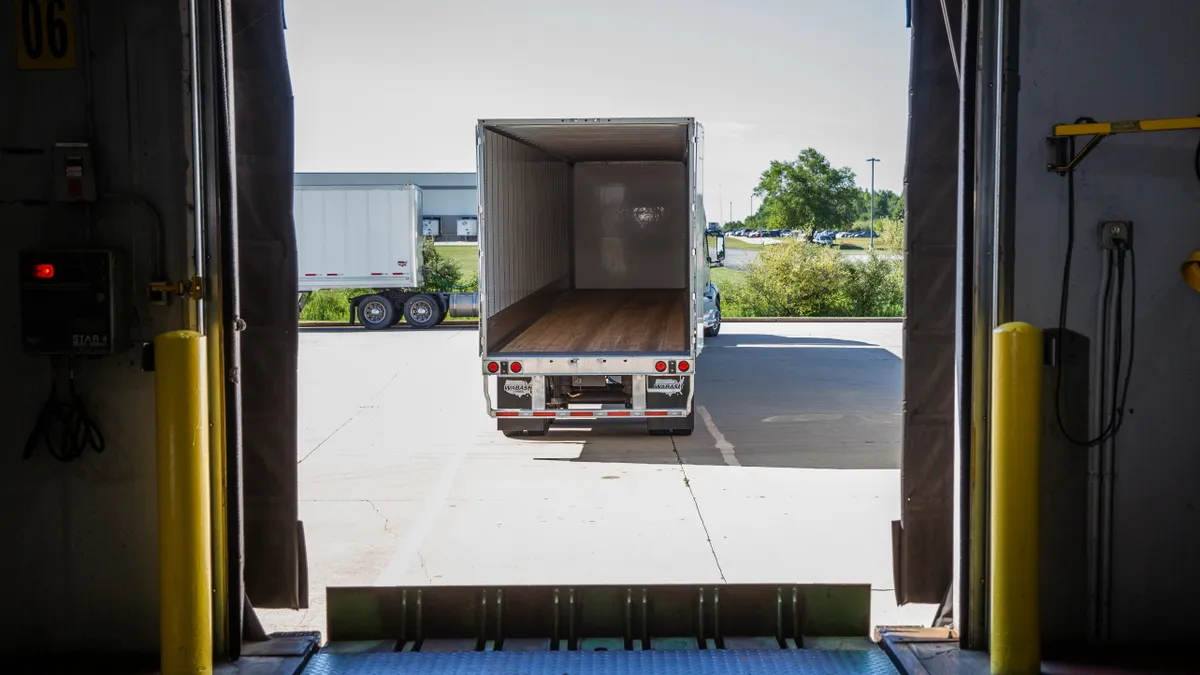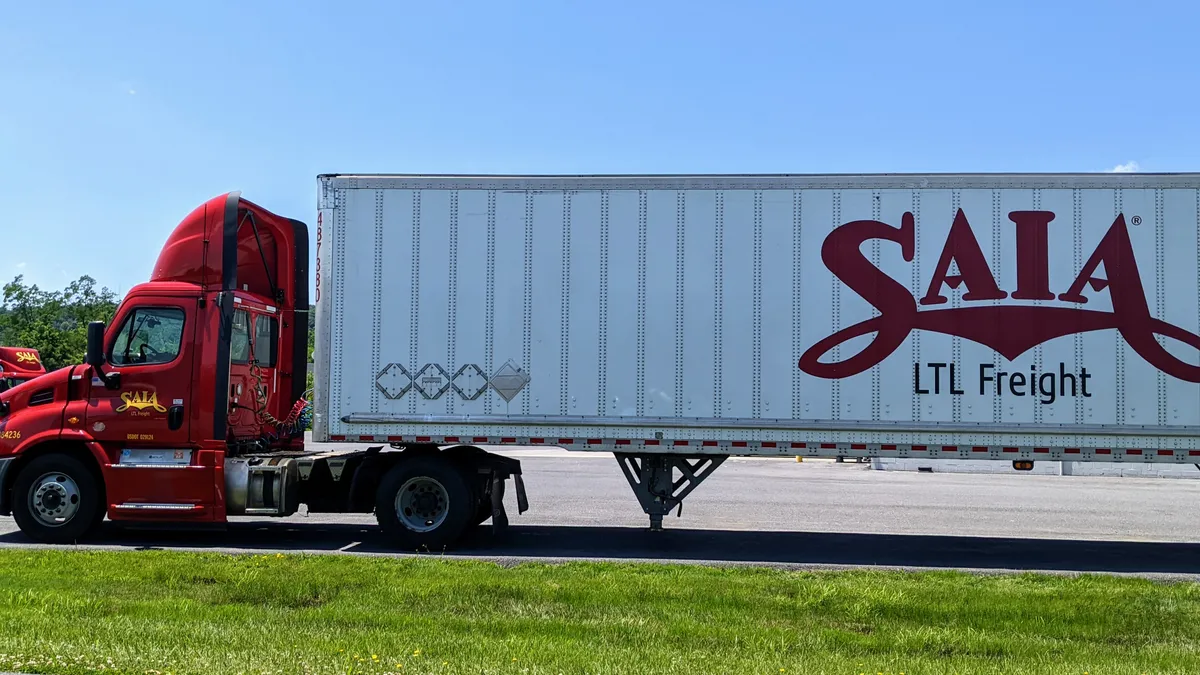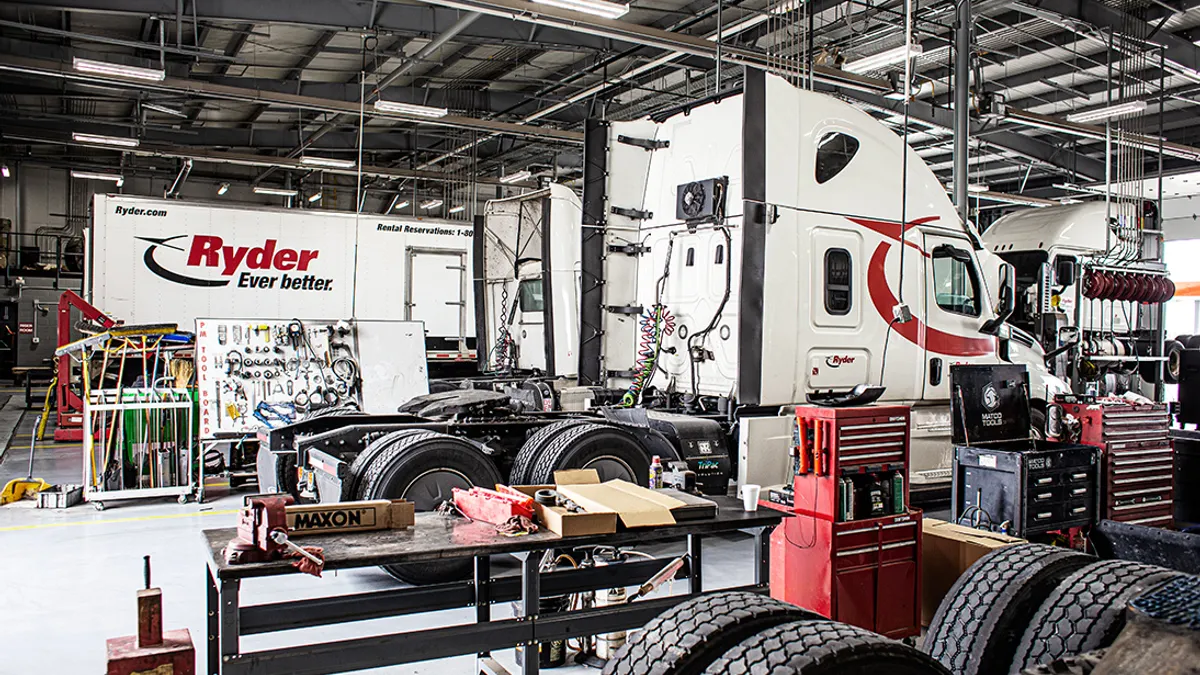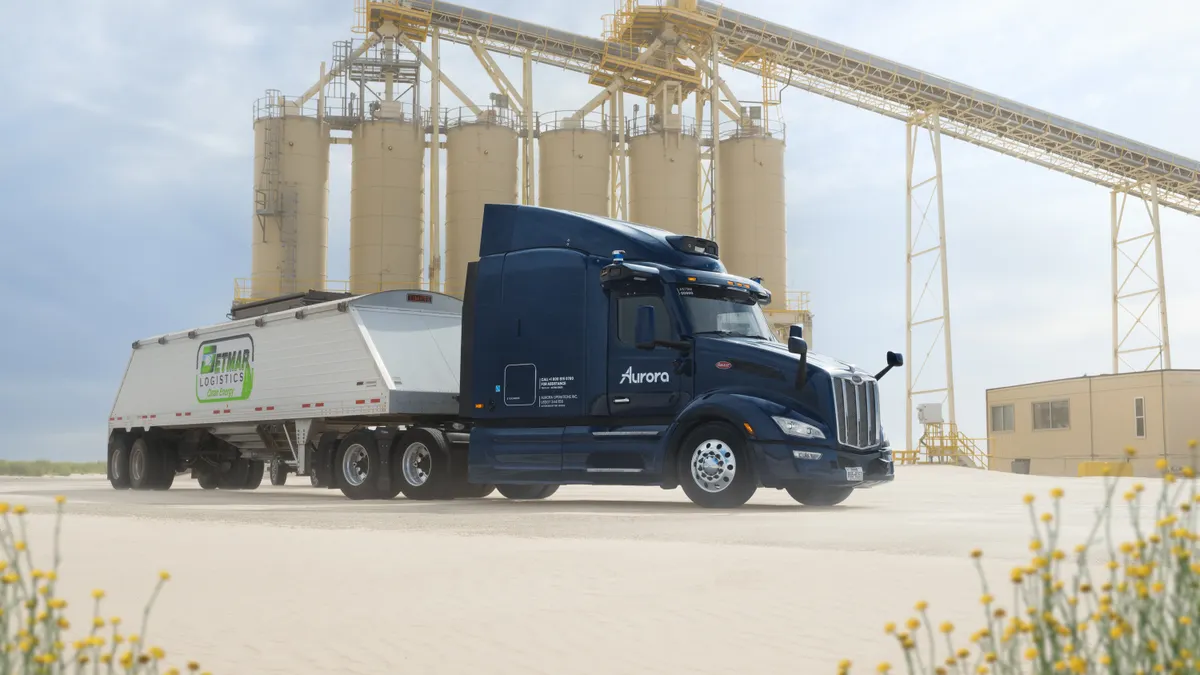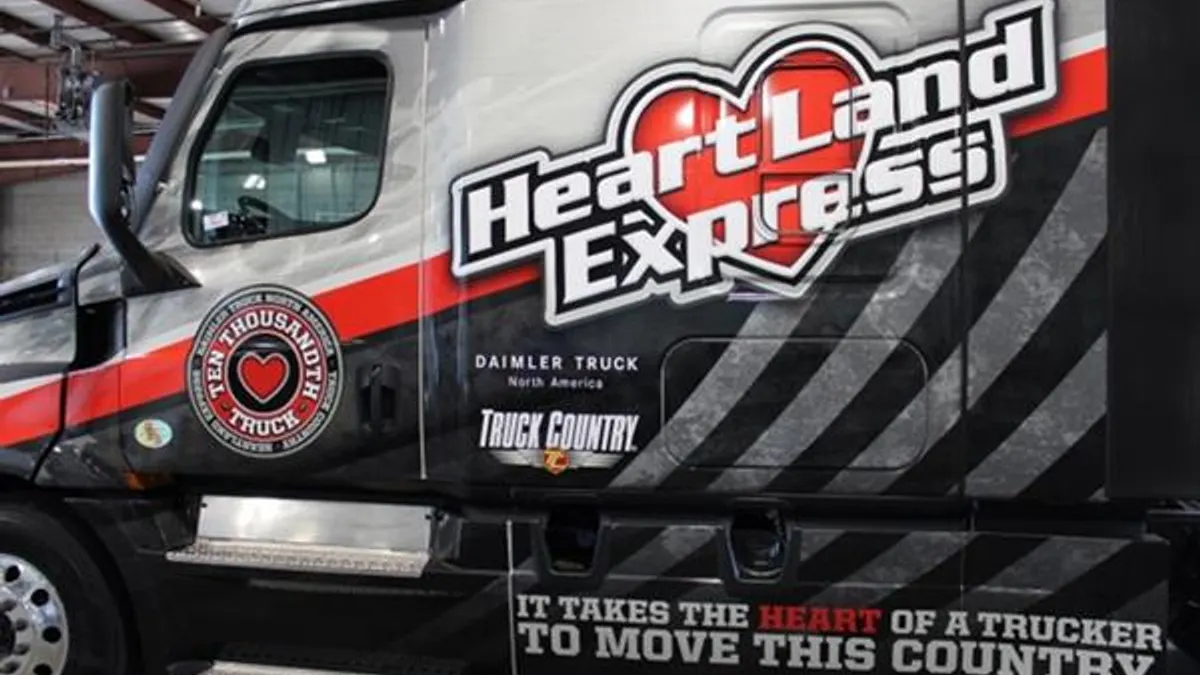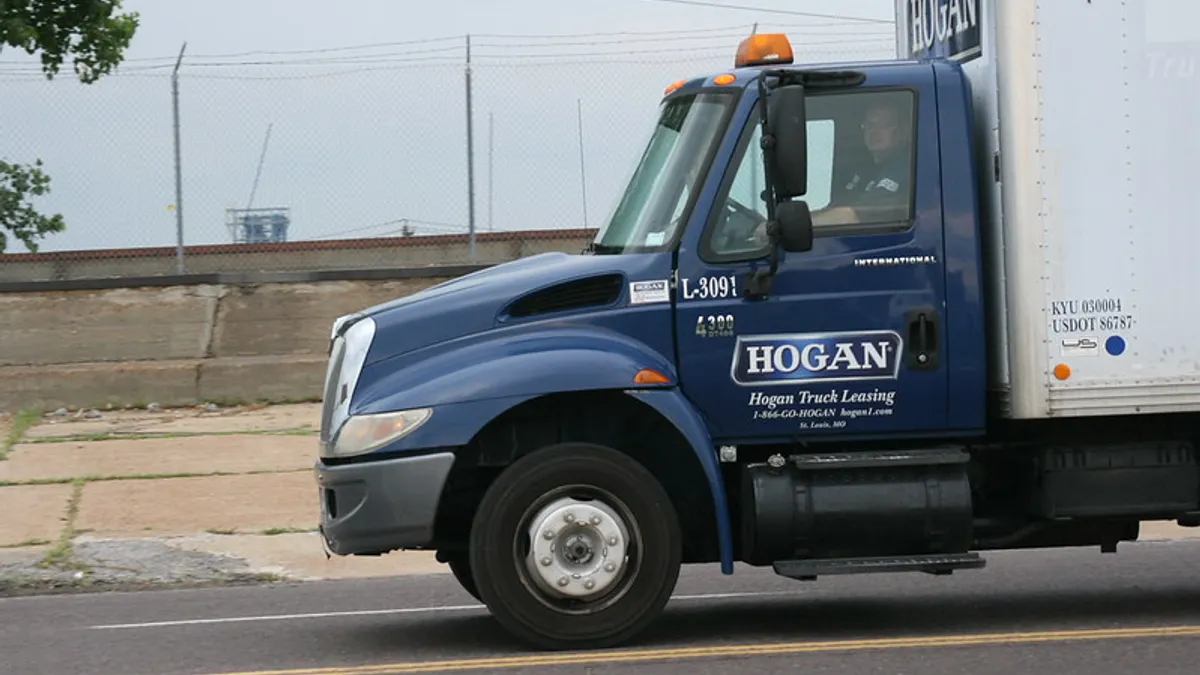In movies from "The Irishman" to "Goodfellas," crooks target valuable cargo in trailers such as sides of beef and cigarettes — items one could easily sell at a discount on the black market.
In reality, in 2020, thieves in the United States went with the market trends, said Keith Lewis, CargoNet vice president of operations.
The common theme? Items that were valuable during the pandemic. Thieves went after bleach, disinfectant and toilet paper — though not exactly the stuff of a great "The Sopranos" episode on cargo theft, or the usual target in movies.
For fleets, the cargo thefts of 2020 are a lesson to safeguard supplies and lock trailers, knowing when the peak times and obvious circumstances of theft are. Theft has a price tag, but that cost usually does not involve the lost time and deadhead miles for the driver to get a new load. It's expensive, and it can trim the margins of profit.
In 2020, the No. 1 commodity stolen was household goods, because those items were in demand, and many tractor-trailers were rushing those things to in-need retailers, Lewis said. About $63 million worth of cargo was stolen, and the average theft for a trailer was $166,000, he said.
Opportunities abound in busy hubs, long weekends
Overall, in 2020, there was a 29.3% increase in thefts involving tractor-trailers from 2019, Lewis said. The thefts range in type, from theft of the entire tractor-trailer unit, to trailers alone, to pilferage.
Lewis said he believes the numerous logjams in 2020 led to opportunities for thieves, who then eyed what type of cargo to steal.
"The opportunities generate the trends," said Lewis.
Opportunities excelled in Dallas County, Texas, the No. 1 county for truck-related theft in the United States. Dallas County has only one cargo-theft investigator employed by the county, and that makes it hard to track down thieves.
"Cargo thieves look at that and say, 'I have an extra day to get away with it.'"

Scott Cornell
Transportation Lead and Crime/Theft Specialist at Travelers
That could change. Experts told Transport Dive that anti-theft police task forces ebb and flow in size as the challenge of cargo theft is met or as it rises. Texas is likely is to scramble to meet the challenge, as it recorded 232 thefts, a 93% increase from 2019, CargoNet reported. Texas also overtook California as the No. 1 state for cargo theft.
Cook County, Illinois, which includes Chicago, came in second on the list of counties plagued by cargo theft. Shelby County, Tennessee, and San Bernardino County, California, tied for third.
All four counties have what thieves look for: much traffic, a general proximity to major ports and many truck stops.
Lewis warned that Memorial Day could be a big day for thieves, who look on the holidays for parked trucks. As July Fourth approaches, thieves will again look for trucks and trailers that linger on lots and at stops, as "cargo at rest is cargo at risk."
Scott Cornell, transportation lead and crime/theft specialist at Travelers, said holiday theft isn't about the gift-giving nature. It's usually about opportunity.
"It's about the time frame," said Cornell. "It's three days; it's four days. Cargo thieves look at that and say, 'I have an extra day to get away with it.'"
Most thefts were of household and food and beverage items
Cornell said electronics were hot items for thieves up until the Great Recession of 2007-2009. That made food and beverage a bigger necessity for consumers. Food and beverage became the biggest cargo items stolen in 2010, and the category retained that title until 2020, when the pandemic struck, he said.
With more people at home during lockdowns and layoffs, household goods took the the spot. And the chip shortage has also helped cause electronics and computer thefts to remain hot near the California ports. CargoNet recently sent out a warning to shippers of computer products.
"CargoNet has noted extreme risk in transporting computer electronics shipments through California," the company said in a May news release. "Theft of these shipments increased 443% between September 2020 and May 2021 from the same period a year ago. On average, each shipment of computer electronics was worth $856,993 per full truckload theft and $246,566 per partial truckload theft."
Fleets fight back
Not every fleet is taking it on the chin. Some are fighting back, and boasting that caution and oversight are knocking down the crime rings.
Schneider recently announced a zero-theft status for cargo in 2020, despite moving "more than 9 million miles of freight each day across North America." The company previously achieved a zero-theft load year in 2014, company officials said.
How did it do it? Schneider officials said it has a "a holistic approach to security, which eliminates theft prevention gaps from beginning to end for truckload and intermodal moves."
John Bozec, Schneider senior vice president, said in a statement that multiple technologies, procedures and training provided "a multilayered effect that strengthens the supply chain and achieves zero cargo theft results."
Cornell warned TL thefts are not going anywhere, despite Schneider's success and despite the rise of pilferage.
But a problem the industry has with pilferage is the reporting of it. When thieves rifle through a few pallets, it's not always reported to insurance or other agencies, said Cornell. It wasn't until some high-profile pilferage of high-value targets, in 2014, that industry leaders began coordinating better on reporting, said Cornell.
As for prevention, Lewis said the most basic first step is fairly easy: Lock the trailer with a strong steel lock. Many drivers or fleets do not do that, and instead rely on plastic seals that indicate the load has not been tampered with. Lewis said security seals were never intended to serve double duty as theft prevention locks.
Other techniques, which Lewis employed when he moved in a U-Haul, include backing up against a wall, which limits the ability of thieves to access the trailer.
"They may be able to get a door open, but they won't be able to get much," said Lewis.
Technology is also getting more sophisticated and hardening the targets, Cornell said. Cameras and sensors can detect when trailer doors are open. Cornell said some tech exists that allows fleet managers to stop trailers from moving if they are being used in an authorized manner. Passcodes can also prevent doors from being open.
Lewis said big fleets tend to have such tech built into new trailer orders, where the cost is scalable in orders of 5,000 or 10,000 units. But it's more expensive for owner-operators to have their trailers retrofitted.
Top counties for truck-related theft, 2020
| Rank | County |
|---|---|
| 1 | Dallas County, Texas |
| 2 | Cook County, Illinois |
| 3 (tie) | San Bernardino County, California |
| 3 (tie) | Shelby County, Tennessee |
SOURCE: CargoNet
Cornell said no tech can guarantee 100% deterrence, thus fleets should adopt "a layered approach," from planning to technology to training.
One such approach has fleets use lane data, crossed with at-risk cargo. The fleets can then instruct drivers to avoid hot spots and rest stops within them. If a driver is stopped in an area known for cargo theft, fleet managers should check in with the driver about their situation: Is the trailer locked? Is the cab locked? Are you parked or can you park in a secure area?
As for security training, Lewis said fleets have to focus on safety and driver training first, and security falls down the list. And complicating matters is drivers are often on the road, unavailable for in-person training. But drivers are very aware their cargo is often targeted.
"The average driver in my experience ... is very aware this is going on," said Cornell.
And if theft is spotted, Lewis said drivers should not confront thieves.
"Stay away from them" said Lewis. "Let them have [the cargo]. Don't risk your life on property. Call 911."

